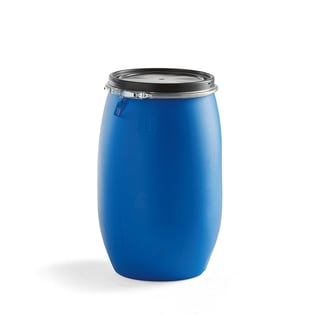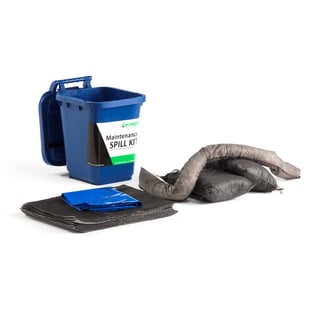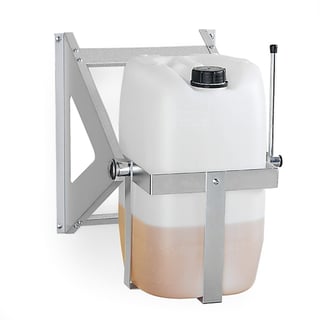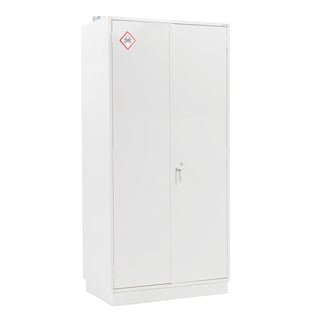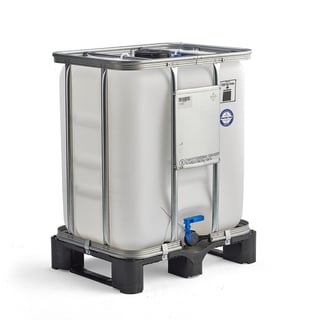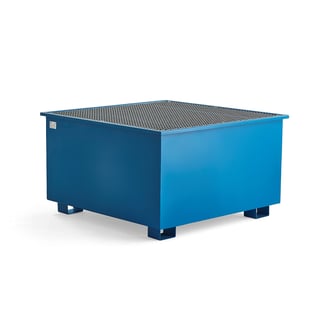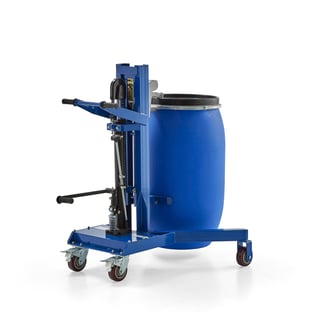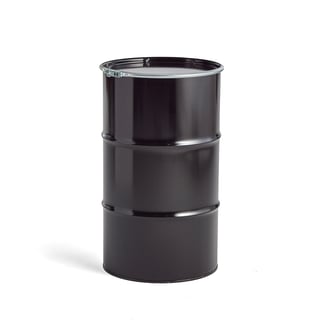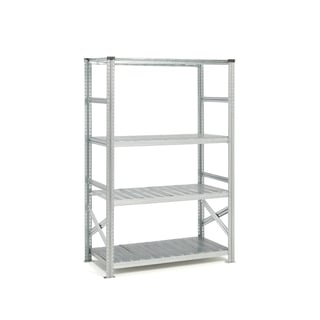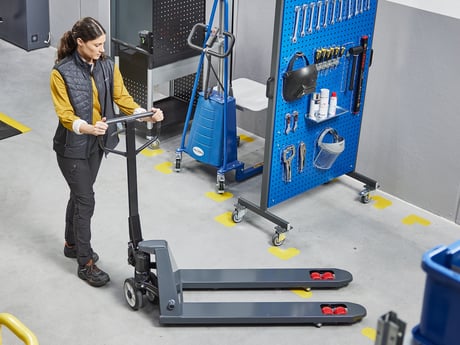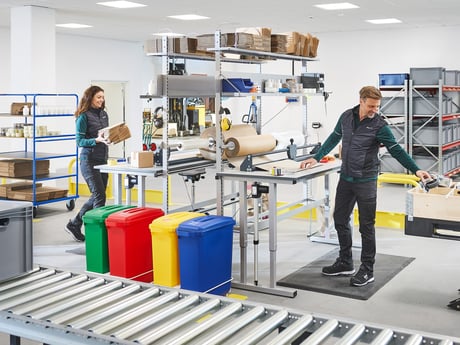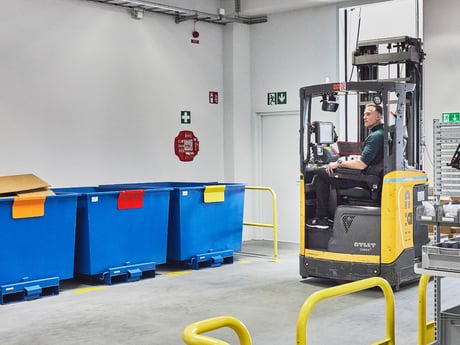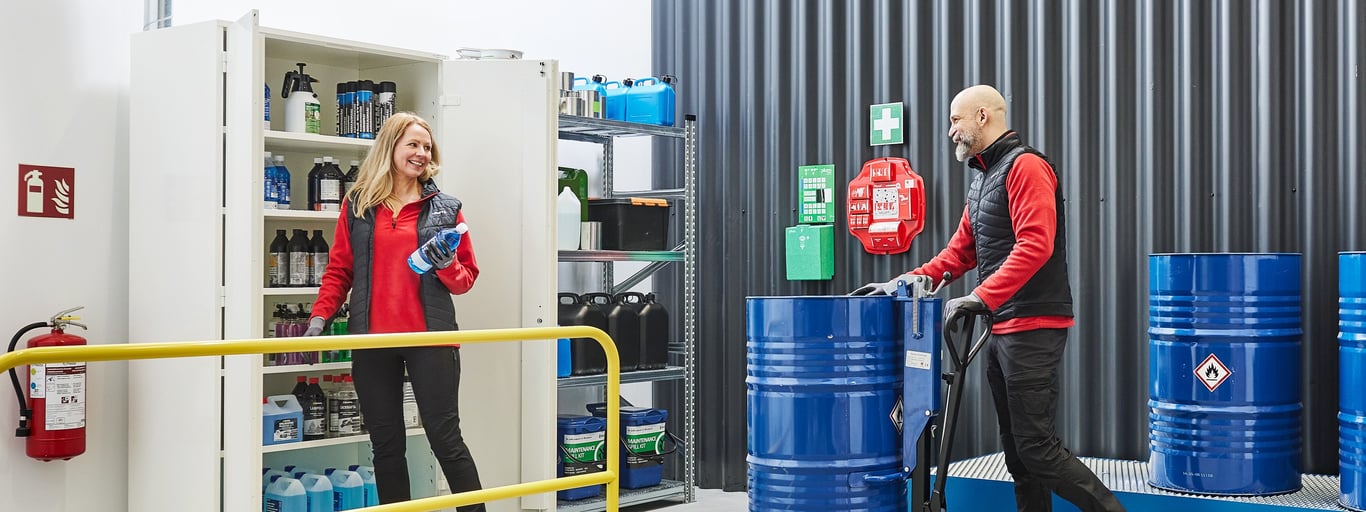
How to Manage and Store Chemicals and Hazardous Waste
Effective management of hazardous chemicals and waste is essential for workplace safety and environmental protection. Learn how to properly handle, store and dispose of these substances to minimize health and environmental risks, creating a safer work environment and protecting public health.
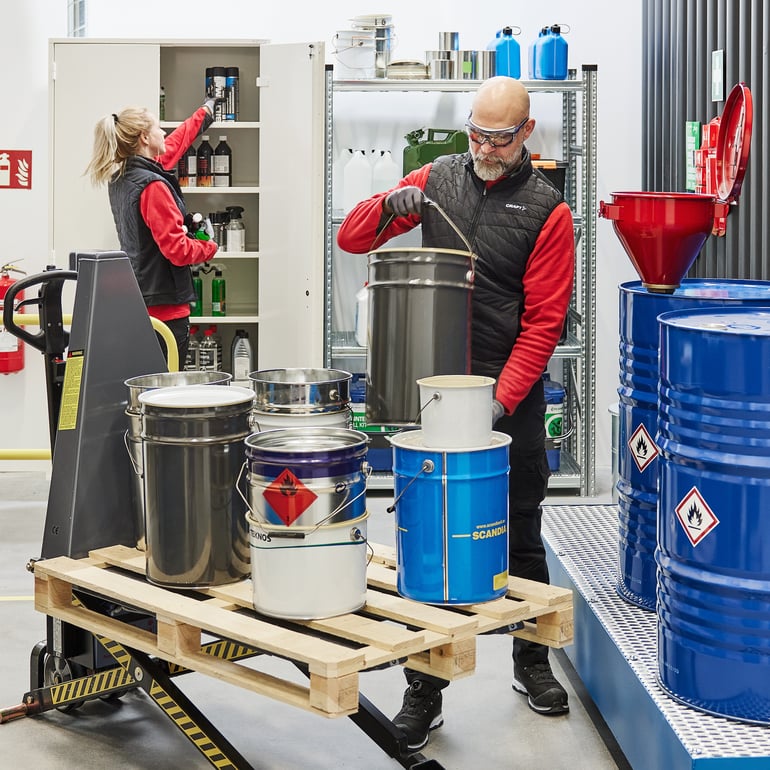
What is hazardous waste?
Hazardous waste refers to materials that can pose a significant threat to human health or the environment, such as corrosive, toxic, flammable or explosive substances. Examples include waste oils, paint residues, batteries, fluorescent tubes and electronic waste with hazardous components. Learn how to manage hazardous waste safely and responsibly.
Use clearly labeled waste bins and recycling containers to efficiently separate and sort different types of waste at your company. Clear labeling minimizes mistakes, reduces risks, protects the environment and helps maintain a well-organised workplace.
Labelling hazardous chemicals
A chemical is defined as a homogeneous substance or compound used in industrial or commercial processes, covering a wide range of materials we encounter in everyday life.
It’s crucial to identify which chemicals may be hazardous to people, animals or the environment. All dangerous chemical products must be classified, labeled and packaged in line with the EU CLP Regulation (No. 1272/2008). This ensures safe handling and with appropriate risk labelling, reduces the risk of harm or exposure.
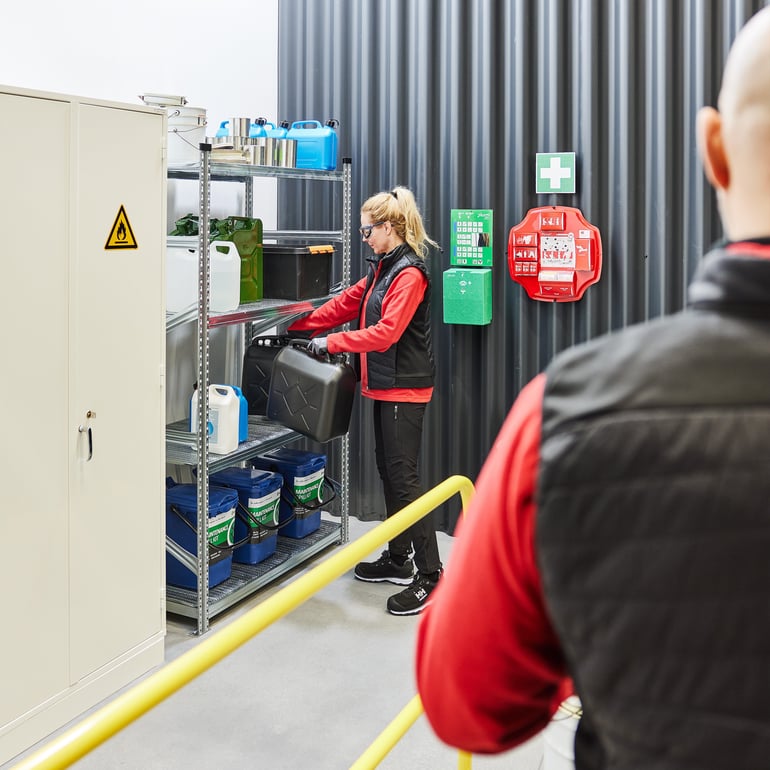
Examples of hazardous chemicals and substances:
- Ammonia
- Arsenic
- Benzene
- Lead
- Formaldehyde
- Dioxins
- Chlorine
- Cadmium
- Sodium hydroxide
- Polychlorinated biphenyls (PCBs)
- Hydrogen sulphide
- Vinyl chloride
Storage of hazardous chemicals
When storing chemicals, there is always a risk of spills or leaks. It’s crucial to take measures to prevent these incidents from causing harm to people, the environment or triggering dangerous chemical reactions.
Important considerations for chemical storage:
- Store chemicals in well ventilated chemical or CoSHH cabinets.
- Prevent dangerous reactions by keeping incompatible chemicals separate.
- Use collection bins, spill tanks, spill guards or plates to collect any dripping and to prevent spills from reaching work areas or water sources.
- Avoid storing acids with bases, strong acids with organic substances or strong oxidizers with oxidizable materials to prevent dangerous reactions.
- Ensure that only authorised personnel have access to chemicals, for example, in lockable cabinets.
- Make sure that personal protective equipment (PPE) and safety data sheets are readily available and that all personnel are trained in handling and storage. Have a clear plan for emergency preparedness.
- Ensure that containers are properly labeled and stored in a designated location to protect employees from hazardous exposure and prevent mix-ups.
Read also: Increasing industrial safety with clear signage and floor markation
Handling hazardous chemicals
Handling chemicals without the proper protective equipment or adherence to regulations can pose serious health risks. As a business owner, it's your responsibility to ensure that clear hazard signs are in place and that staff are well-trained in safety procedures. This increases the likelihood that safety protocols will be followed, reducing the risk of accidents or fines.
Promoting safe chemical handling demonstrates a commitment to workplace safety. When employees feel secure and are empowered to take responsibility for their own safety and that of others, it positively impacts the work culture. Regular inspections and equipment maintenance help keep the workplace in good condition, while managing inventory effectively can reduce unnecessary purchases and waste. A helpful tip is to implement the 5S method for better organisation and efficiency.
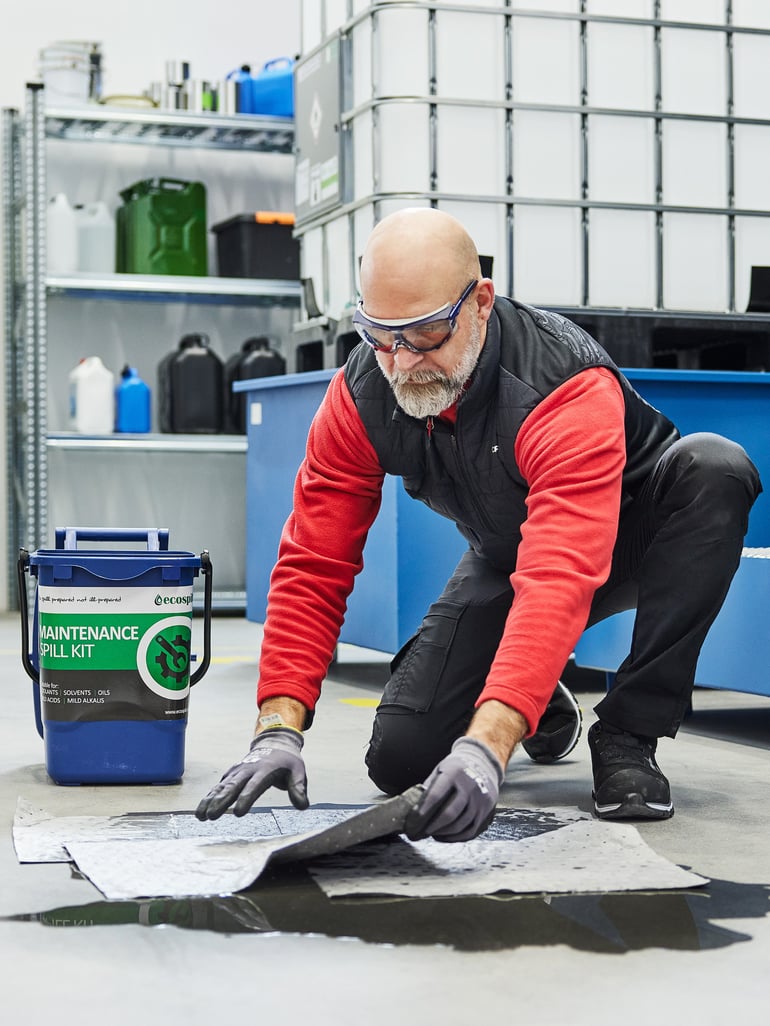
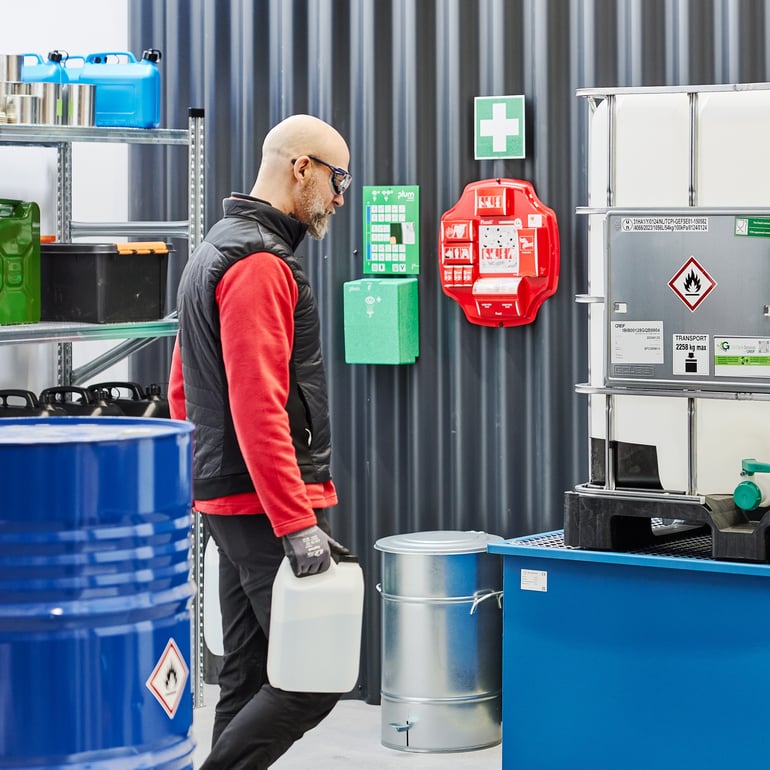
Managing hazardous waste
Hazardous waste should never be disposed of with general waste, mixed with other materials or poured down drains. Businesses must follow specific regulations for the proper separation, documentation, and transportation of hazardous waste to ensure safe handling and minimize environmental impact.
Companies are required to comply with regulations for reporting and tracking hazardous waste, ensuring it is managed safely and responsibly. Proper waste management and tracking are essential for protecting the environment and preventing the release of harmful substances into the surroundings.
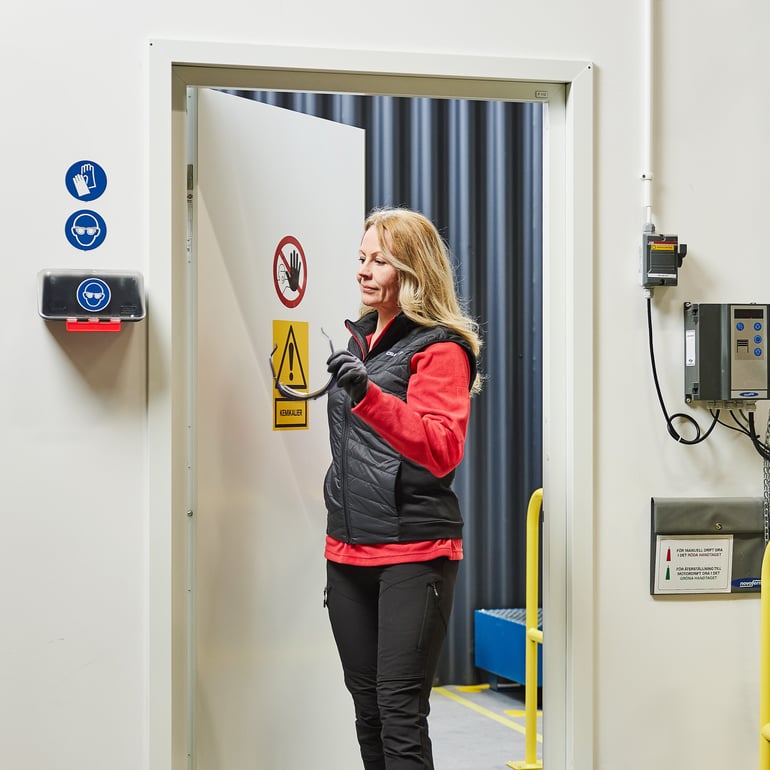
Examples of hazardous waste:
- Acetone
- Degreasers
- Batteries
- Pesticides
- Electronic waste
- Treated wood
- Solvent-based paints
- Mercury
- Turpentine / White Spirits
- Glues
- Acids
- Waste Oil
Contact us for waste handling solutions
If you have questions about chemical storage or waste containers, please contact us. We are happy to assist you!
